news
Labour Party chieftain, Okupe, Makes a u-turn and applauds Tinubu for hitting the ground running, showing determination and courage in leadership
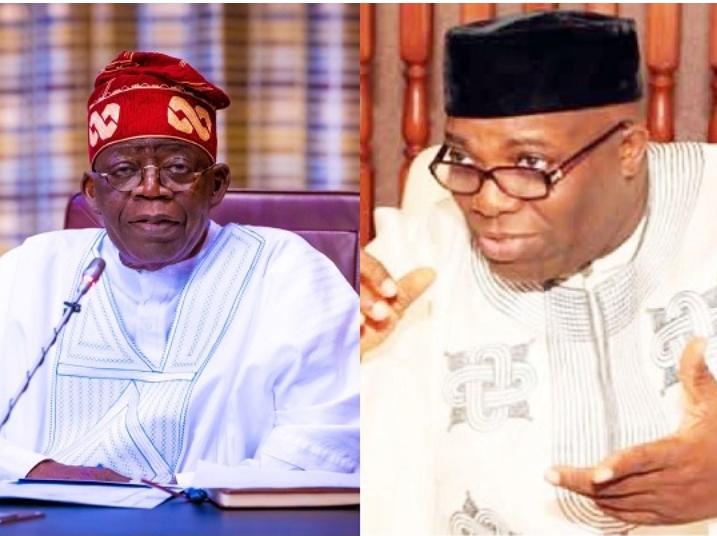

Achieftain of the Labour Party (LP) Doyin Okupe has commended President Bola Tinubu for showing commitment, zeal and courage in directing the affairs of the nation.
Okupe, an ex-aide to former President Olusegun Obasanjo in his piece titled: “For President Bola Tinubu: Still Many Rivers to Cross,” applauded the President for abolishing fuel subsidy and equalising foreign exchange.
He said: “President Bola Tinubu actually hit the ground sprinting; showing much determination, zeal commitment and courage. He has taken 2 extraordinarily bold steps by abolishing fuel subsidy and equalizing foreign exchange.
“This without doubt is causing very severe pain and hardship on the populace. However, in order to ground these policies properly, and reduce the pain on the populace, the President will still need to take more bolder steps.
“1. Nigeria must quit OPEC. – In about two decades from now, oil reserves may become meaningless. The present allocation of less than 2 million barrels per day for Nigeria with a population of over 200 million people and it’s prevailing strangulating economic conditions, given volumes of export to our main foreign exchange earner (90%) is inimical to our growth as a nation and to the wellbeing of the citizens.
“Outside OPEC, Nigeria can reduce it’s selling price of crude but also increase it’s exports to 3 million barells and above per day.
“This will increase accruable revenue from forex by up to 200% or more, which will allow the CBN have more supply of forex to the banks. In the face of surplus liquidity in forex supply, Naira will gain tremendous value over the Dollar.
“2. The present situation whereby the oil majors earn 60% of our accruable revenue from sales of oil leaving Nigeria with only 40% is no longer economically and financially prudent or reasonable. Saudi Arabia, using its own Aramco drills its own oil and earns 100% of the revenue from sales.
“We may not be able to achieve this instantly, but we should renegotiate with the oil majors for the ratio to shift in the favour of Nigeria to 60:40 minimum, even if we must add considerable investment in the processing for oil.
“3. The NNPC can no longer serve fully, neither can it meet the full expectations of it’s obligations to the Nigerian people. I am inclined to recommend that the President and his team should take a look and study the Atiku Abubakar model as it concerns the NNPC as a commercial entity.
“4. Most of the local refineries can still be made to be functional for the next 50 years. Part of the massive revenue inflow from the equalization of the forex regime should be used to refurbish once and for all, all our refineries, employing the best acceptable international bidding procedures to choose reputable international contractors to be engaged in the refurbishment programme.
“This should be done outside the purview of the NNPC and by a special presidential team that will abide by the best principles of honesty and transparency.
“5. Government must instantly liberalize licensing for investors who are interested in building petroleum refineries in Nigeria; especially modular refineries.
“6. The present crop of Nigerians engaged in crude petroleum refining who are scattered all over the place should no longer be hounded by task forces but rather harnessed officially into the downstream sector and licensed under supervision to produce and sell petroleum products.
“7. Government must deploy all powers and resources available to it to put a final end to crude oil theft and limit to the barest minimum, pipeline vandalization throughout the country.
“8. In spite of our leadership of ECOWAS in this period, the Nigerian government should encourage the deployment of diplomatic crises management approach and seek ways by using its influence with the organization to end the crises in Niger as quickly as possible as a precursor to urgent steps that need to be taken towards the activation of the plan to build the trans-sahara gas pipeline from Nigeria to Algeria and Europe, through Niger and Algeria.
“If this can be accomplished in the next 3 years, with Nigeria being the 9th highest deposit of gas in the world, sales of gas to Europe will bring in revenue in excess of $30b per annum.
“9. In order to ameliorate the present hardship in the country and give succor especially to the poor, government will have to revisit the 100% abolition of fuel subsidy pending the time when some of the items enumerated above can be accomplished. In the mean time, part of the excess inflow from forex equalization can be deployed to fund a supplementary budget to the National Assembly to cover for whatever percentage of the subsidy regime that government considers will suffice to grant the desired relief of the current hardship.
“10. The equalization of the foreign exchange regime instantly brings in massive revenue into the federation account from NNPC. Last month, for the first time ever, a sum if 1.5tr was available for sharing among the 3 tiers of government.
“The implication of this is that each tier of government will have the requisite financial cushioning to increase minimum wage to at least N60,000 per month.
“The rest of the excess funds can be channeled towards the repair and refurbishing of refineries as stated above and further strategic infrastructural and human development projects especially at states and local government levels.
“Furthermore, the more export trades our small and medium scale enterprises and business concerns within the country undertake will boost and improve the percentage of inflow of Dollars from non-oil exports.
“The weakening of the naira also has a major economic advantage of making our goods and services cheap abroad. Government must seize the situation to encourage the export if anything and everything by individuals and enterprises.
“Such encouragement may include payment of special grants per tonnage of goods exported.
“11. In the same vein, a major international drive and campaign must be undertaken by the CBN to encourage Nigerians in diaspora to use the official platform for remitting money home from abroad. This may be in form of waving commissions and fees chargeable on transfers.
“With an inflow of nearly $25b per annum from the diaspora community, Dollar supply to the CBN will increase to a large extent.
“12. Power generation and distribution is a major player in our economy; creating employment and improving the living standard of people generally.
“With this in view, I will strongly recommend that government shifts the level of power generation without official licensing from 1 MW to 5 MW. The cost of generating power from various sources is about $1-1.2m per MW on the average. With this singular policy, up to 1,000 local investors can enter into the power generation market in less than 1 year thereby boosting our power generating potential by more than 5,000 MW in 1 year.
“If this policy is followed with more liberalization of the power act of 2022, the need for generating sets by millions of Nigerians will drastically reduce by more than 80%. This will also further cause a decline in the demand by the populace especially the lower class for petrol to power small generators either for business or leisure.
“In conclusion, I personally believe that President Bola Tinubu is a thinker and an achiever. I have therefore enumerated the points above just to stimulate thoughts and actions and draw attention to areas which I consider if exploited, will add value to the plans of the current administration, increase revenue inflow to the country, reduce hardship and combat poverty.”
news
BREAKING: Tinubu Names Tunji Disu Acting Inspector General After Egbetokun’s Exit

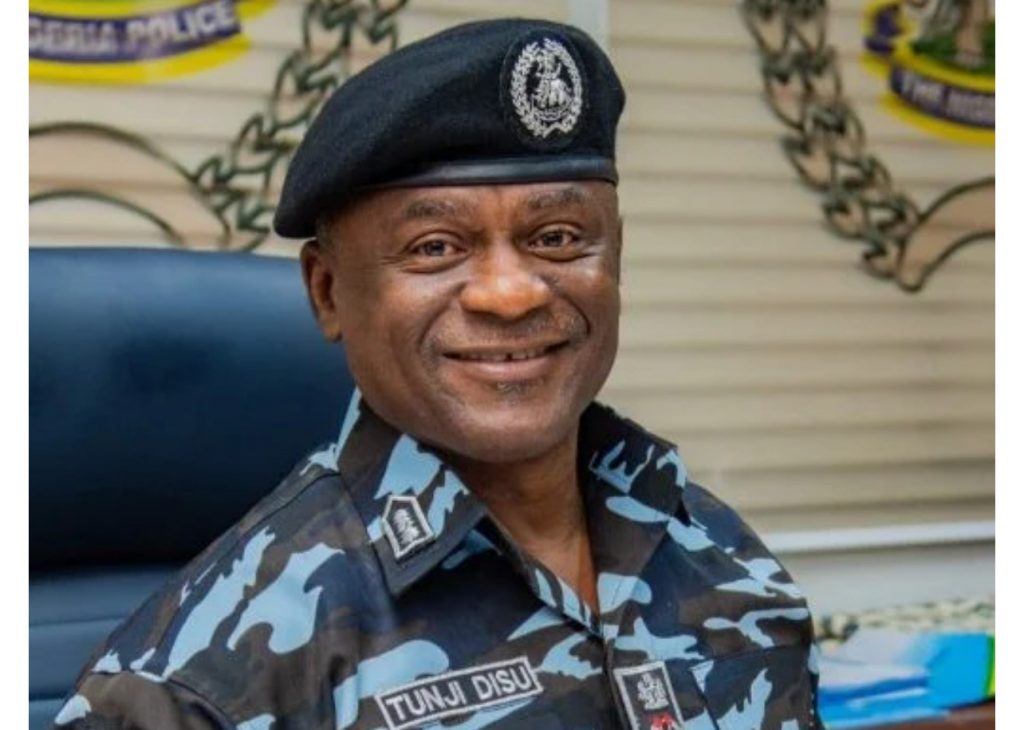
President Bola Tinubu has accepted the resignation of the Inspector-General of Police, Kayode Egbetokun, and approved the appointment of Tunji Disu as Acting Inspector-General of Police with immediate effect.
Our correspondent had earlier reported that Egbetokun tendered his resignation letter on Tuesday, citing pressing family considerations.
Appointed in June 2023, Egbetokun was serving a four-year term scheduled to conclude in June 2027, in line with the amended provisions of the Police Act.
In a statement issued on Tuesday by his Special Adviser on Information and Strategy, Bayo Onanuga, the President received the letter earlier on Tuesday and expressed appreciation for his service to the nation.
He also commended Egbetokun’s “decades of distinguished service to the Nigeria Police Force and the nation,” acknowledging his “dedication, professionalism, and steadfast commitment to strengthening internal security architecture during his tenure.”
“In view of the current security challenges confronting the nation, and acting in accordance with extant laws and legal guidance, President Tinubu has approved the appointment of Assistant Inspector-General of Police Tunji Disu to serve as Acting Inspector-General of Police with immediate effect.
“The President is confident that AIG Disu’s experience, operational depth, and demonstrated leadership capacity will provide steady and focused direction for the Nigeria Police Force during this critical period,” the statement read.
It added that in compliance with the provisions of the Police Act 2020, the President will soon convene a meeting of the Nigeria Police Council to formally consider Disu’s appointment as substantive Inspector-General of Police, after which his name will be forwarded to the Senate for confirmation.
The President reaffirmed his administration’s commitment to enhancing national security, strengthening institutional capacity, and ensuring that the Nigeria Police Force remains professional, accountable, and fully equipped to discharge its constitutional responsibilities.
news
Breaking : Nigeria Gets New Electoral Act as Tinubu Signs 2026 Reform Bill

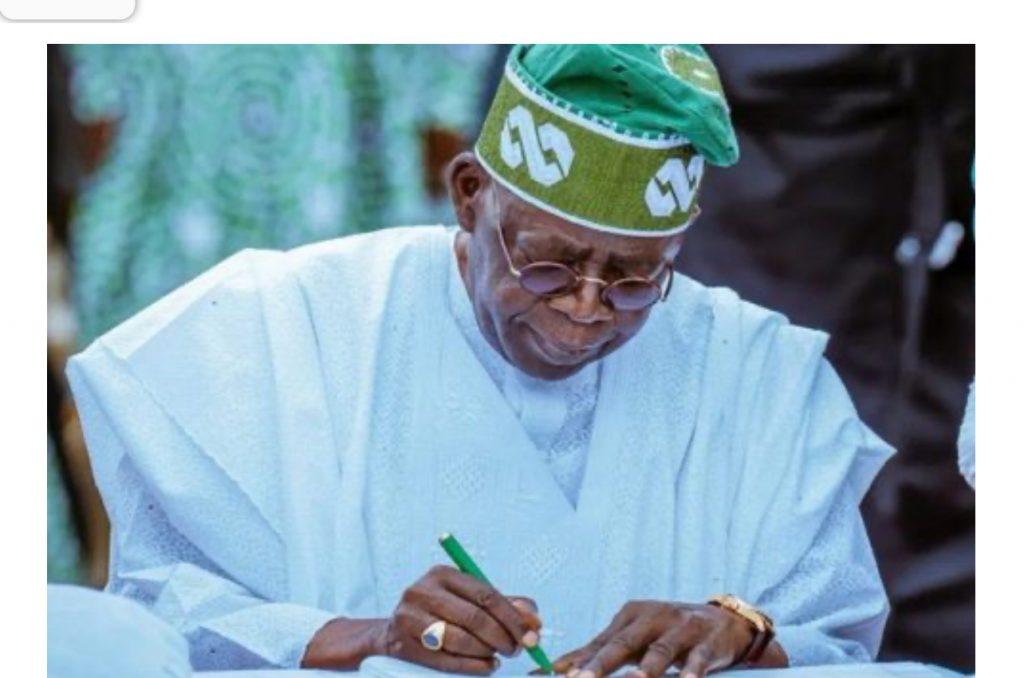
President Bola Tinubu has signed the Electoral Act 2026 (Amendment) into law, days after the Independent National Electoral Commission (INEC) released the timetable for the 2027 general elections.
The signing ceremony took place at the State House, Abuja, at about 5:00pm on Wednesday, with principal officers of the National Assembly in attendance.
The National Assembly had on Tuesday passed the Electoral Act 2026 (Amendment) Bill.
The latest amendment comes amid intense public debate over the electronic transmission of election results in real time.
Last week, protests erupted at the National Assembly complex as civil society organisations and opposition figures mounted pressure on lawmakers to mandate live transmission of results from polling units directly to INEC’s central server.
The protesters argued that real-time transmission would reduce result manipulation and strengthen public confidence in the electoral process.
However, the ruling All Progressives Congress (APC) and some stakeholders have raised concerns about the technical feasibility of live transmission, particularly in communities with weak telecommunications infrastructure. They have argued for a phased or hybrid approach that would allow manual collation where electronic systems fail.
news
EFCC Extends El-Rufai’s Stay in Custody Amid ₦432bn Probe
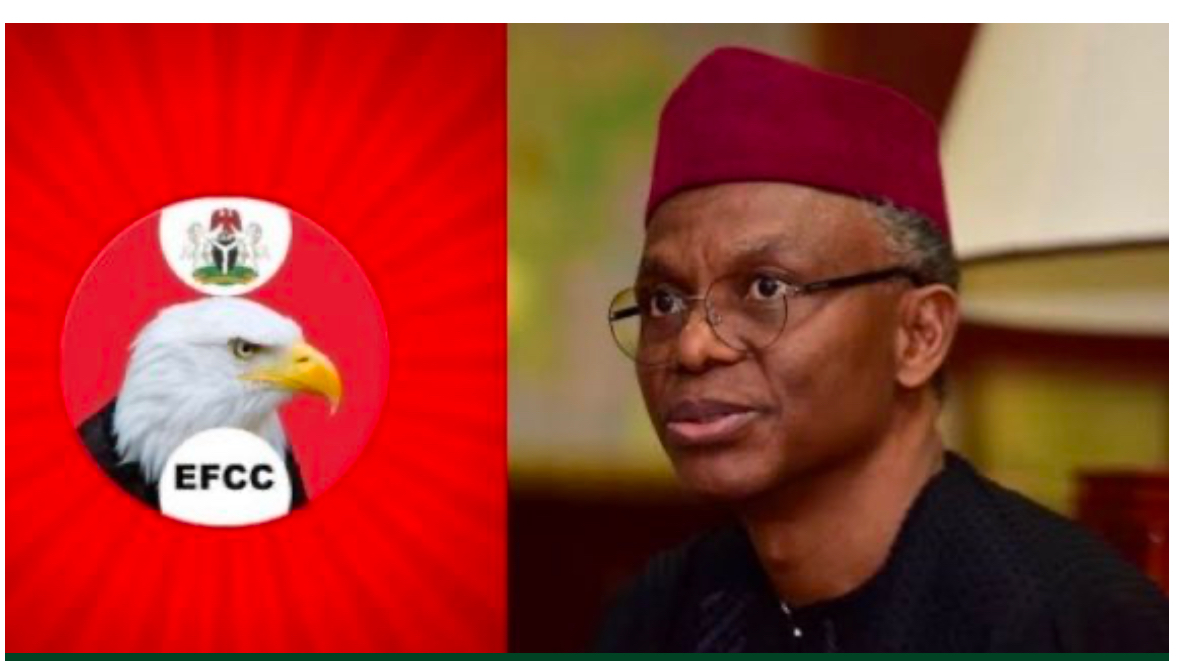
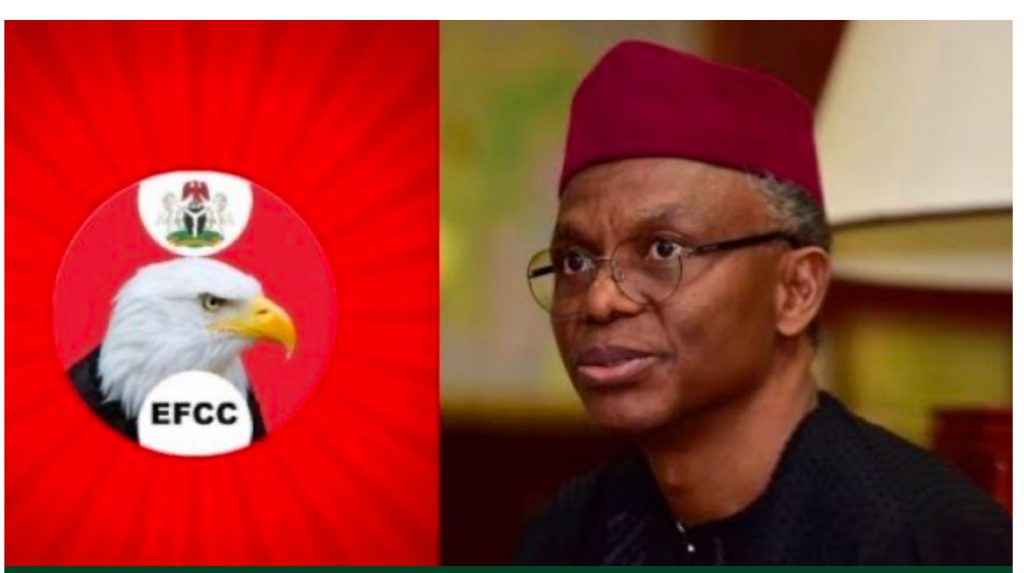
Former Kaduna State Governor, Nasir El-Rufai, on Tuesday spent the second night in the custody of the Economic and Financial Crimes Commission, as his lawyer, A.U Mustapha (SAN), pushes for his release on bail.
There are, however, indications that the commission may seek a remand order to extend his stay in custody to enable him to respond to questions posed by investigators handling his matter.
The former governor arrived at the EFCC headquarters in Abuja on Monday around 10 a.m. for questioning in connection with an alleged N432bn corruption probe. He was, however, detained at the commission, where investigators continued to grill him.
An official of the commission who pleaded anonymity said the anti-graft agency was considering obtaining a remand order after the expiration of the hours allowed by law to enable investigators conclude questioning him.
“Forget the speculations being peddled on social media that he has been released. He has not. El-Rufai is still with us and will be spending another night in custody.
“He is very much with us and will remain so because the investigators are considering getting a remand order after the expiration of the 48 hours allowed by law.
“The investigators need some time with him to answer questions arising from his eight years as governor in Kaduna State,” the source said.
Speaking in a telephone conversation with The PUNCH on Tuesday, El-Rufai’s counsel, Mustapha, confirmed that the former governor remained with the anti-graft agency, while insisting that his client had fully cooperated with investigators.
He described his client as a responsible citizen who is not a flight risk if granted bail.
Mustapha said, “Well, as a responsible citizen, he was invited and, true to his word, he honoured the invitation.
“As we speak, he is still with the EFCC. He is cooperating to the best of his capacity, and we hope that the EFCC, given its integrity, will be kind enough to admit him to bail because he is presumed innocent, and I am sure if he is granted bail, he will not jump bail.
“He is a responsible citizen, and everybody knows him. He came to Nigeria on his own volition. He wrote a letter that he was going to honour the EFCC invitation, and he kept his word as a man of integrity. We’re hopeful that very soon he will be granted bail.”
When asked about the specific allegations against his client, Mustapha declined to offer details.
“You’re asking the right question from the wrong person. That question can only be answered by the EFCC and not by me. I would just be speculating, and lawyers don’t do that.”
Pressed further on whether he witnessed parts of the interrogation and what it was about, Mustapha responded, “That would be prejudicial. It’s a confidential matter and not meant for public consumption.”
The EFCC’s interrogation is linked to the report of an ad hoc committee of the Kaduna State House of Assembly set up in 2024 to probe finances, loans, and contracts awarded between 2015 and 2023 during El-Rufai’s administration.
EFCC extends El-Rufai detention, Plateau indigenes killed, other top stories
Rep backs real-time electronic transmission of election results
The committee, chaired by Henry Zacharia, had alleged that several loans obtained during the period were not utilised for their intended purposes.
While presenting the report, the Speaker, Yusuf Dahiru Leman, claimed that about N423bn was allegedly siphoned under the former governor’s administration.
The committee recommended the investigation and prosecution of El-Rufai and some former cabinet members over alleged abuse of office, diversion of public funds, money laundering, contract awards without due process, and reckless borrowing.
The Assembly subsequently forwarded petitions to the EFCC and the Independent Corrupt Practices and Other Related Offences Commission.
El-Rufai has denied the allegations, describing the probe as politically motivated, and insisted that loans obtained during his tenure were properly appropriated and used for infrastructure, education, healthcare, and security.
On Monday, an EFCC source said the commission had been investigating the matter for about a year, noting that suspects are usually invited after investigations have reached an advanced stage.
“The commission has been investigating him for about a year now. As a commission, we don’t just rush to invite suspects. Persons accused are always the last; that is, after we might have done our investigation to an advanced stage.
“We are investigating him on the allegations against him by the Kaduna State Assembly,” the source said.
Meanwhile, in a separate development, the Department of State Services has filed criminal charges against El-Rufai before the Federal High Court in Abuja over alleged unlawful interception of the phone communications of the National Security Adviser, Nuhu Ribadu.
The three-count charge, marked FHC/ABJ/CR/99/2026, was filed under the Cybercrimes (Prohibition, Prevention, etc.) Amendment Act, 2024, and the Nigerian Communications Act, 2003.
According to the charge sheet, El-Rufai allegedly admitted during a February 13, 2026, appearance on Arise TV’s Prime Time Programme that he and unnamed associates unlawfully intercepted Ribadu’s communications.
Count One alleged that El-Rufai “did admit during the interview that you and your cohorts unlawfully intercepted the phone communications of the National Security Adviser, Nuhu Ribadu,” an offence said to be punishable under Section 12(1) of the Cybercrimes Amendment Act.
Count Two accused him of acknowledging knowledge of an individual involved in the alleged interception without reporting it to security agencies, while Count Three alleged that he and others still at large used technical equipment that compromised public safety and national security.
The prosecution further claimed that the alleged act, reportedly admitted during the television interview, caused “reasonable apprehension of insecurity among Nigerians.”
He is yet to be arraigned.
-

 news5 years ago
news5 years agoUPDATE: #ENDSARS: CCTV footage of Lekki shootings intact – Says Sanwo – Olu
-

 lifestyle6 years ago
lifestyle6 years agoFormer Miss World: Mixed reactions trail Agbani Darego’s looks
-

 health5 years ago
health5 years agoChairman Agege LG, Ganiyu Egunjobi Receives Covid-19 Vaccines
-

 lifestyle4 years ago
lifestyle4 years agoObateru: Celebrating a Quintessential PR Man at 60
-

 health6 years ago
health6 years agoUPDATE : Nigeria Records 790 new cases of COVID-19
-

 health6 years ago
health6 years agoBREAKING: Nigeria confirms 663 new cases of COVID-19
-

 entertainment1 year ago
entertainment1 year agoAshny Set for Valentine Special and new Album ‘ Femme Fatale’
-

 news9 months ago
news9 months agoBREAKING: Tinubu swears in new NNPCL Board


